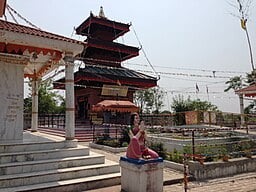Mukti, or moksha, is the Sanskrit word for liberation from the cycle of death and rebirth (samsara).
It is the ultimate goal of all spiritual paths in Hinduism, including Vedanta.
According to Vedanta, the root cause of suffering is ignorance of our true nature. We believe ourselves to be separate individuals, but this is an illusion. Our true nature is Brahman, the infinite and unchanging reality that underlies all existence. Once we realize this, we are liberated from the cycle of birth and death.
There are two main types: Jivanmukti and Videhamukti.
Jivanmukti is liberation while still alive. It is achieved through the direct realization of our true nature as Brahman.
Videhamukti is liberation after death. It is achieved by those who have not attained jivanmukti during their lifetime.
The different schools of Vedanta have different views on the nature of it. For example, Advaita Vedanta teaches that it is the realization that Brahman is the only reality and that the individual self is an illusion. Dvaita Vedanta, on the other hand, teaches that it is the attainment of eternal bliss in the company of God.
Regardless of the school of Vedanta, all agree that it is the highest state of consciousness. It is a state of perfect peace, joy, and freedom from suffering.
Here are some of the ways to attain Moksha according to Vedanta:
- Jnana yoga: The path of knowledge. This involves studying the scriptures and meditating on the nature of Brahman.
- Bhakti yoga: The path of devotion. This involves worshiping God and surrendering oneself to Him.
- Karma yoga: The path of selfless action. This involves performing one’s duties without attachment to the fruits of action.
It is important to note that the path to Mukti is not easy. It requires dedication, discipline, and perseverance. However, it is a path that is open to all, regardless of one’s background or circumstances.
Image credit
Lucero wb, CC BY-SA 4.0, via Wikimedia Commons
